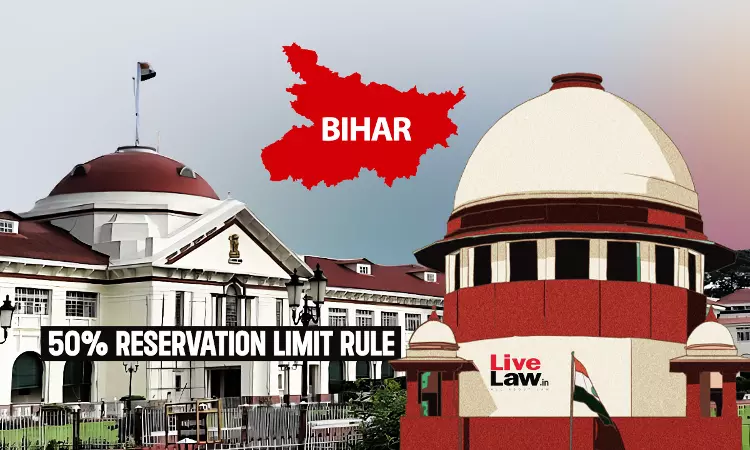Explainer | 50% Reservation Rule & Bihar Caste-Quota Law Judgment Of Patna High Court
Yash Mittal
25 Jun 2024 11:40 AM IST

Next Story
25 Jun 2024 11:40 AM IST
Recently, the Patna High Court struck down the laws passed by the Bihar Legislative Assembly providing 65% reservation to the domiciles of Bihar belonging to Schedule Castes (SCs), Schedule Tribes (STs), and Other Backward Classes (OBCs) in matters of public employment and admission to education institutions. The Court reasoned that the enhancement of reservations beyond the 50% is bad in law...
